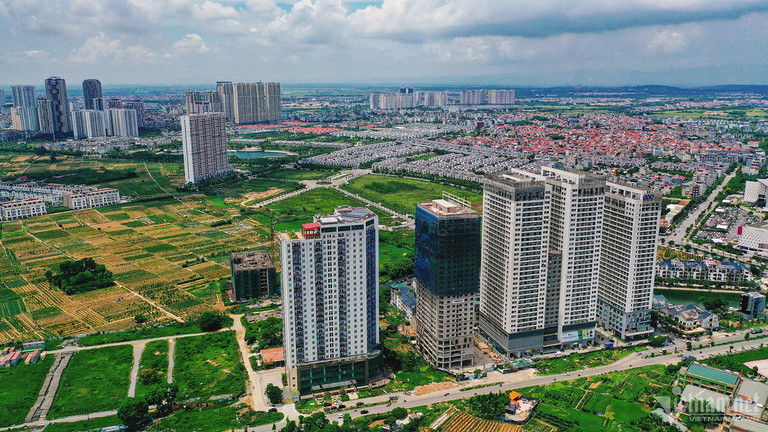
The National Assembly on November 22 decided to postpone voting on the revised Land Law until the next session because many provisions remain controversial and unclear.
Many real estate projects that have stalled because of legal problems will have to wait for new regulations. The real estate market has been quiet for a few years because of many unclear regulations.
Some realtors have capital ‘buried’ in unfinished real estate projects
Nguyen Van Dinh, deputy chair of the Vietnam Real Estate Association, confirmed that many realtors had been awaiting the new law to remove bottlenecks.
However, Dinh said that the National Assembly made the right decision when postponing the approval of the draft law, because some major content and policies still need further consideration, and some issues, including land allocation, land leasing, and compensation for site clearance, remain controversial.
Vu Cuong Quyet, CEO of Dat Xanh Mien Bac, agreed that it would better to delay the approval of the draft law until next year if many problems remain.
He said the Land Law has special importance and considerable impact on socio-economic development and people’s lives, so it must not be ratified in a hurry.
“If we still cannot anticipate the detailed impact on the socio-economic market, we may cause adverse effects if we insist on approving the law as initially planned,” he said, adding that the draft law still needs further analysis.
Real estate developers hope the new Land Law will cover all current issues stipulated in the old law and settle all existing problems.
“All real estate firms want to have land to develop projects. They are concerned about land valuation methods, land allocation, land bidding and land tax calculation,” he said.
“They also want to see solutions to site clearance. In many cases, projects get stuck although 90-95 percent of the land has been cleared,” he continued. “All the issues must be legalized with detailed regulations to allow realtors to operate smoothly."
Status of real estate market
Nguyen Anh Que, president of G6 Group, warned that the National Assembly decision on delaying the draft law will affect the real estate market, which is experiencing a crisis in both supply and number of transactions, leading to investors’ low confidence, thus affecting economic growth, the flow of funds and capital absorption.
“The current investment procedures are too complicated with laws containing overlapping provisions, which leads to a lot of time to implement real estate projects,” Que said.
“In general, we have to spend 3-7 years on procedures. The time needed to implement some special projects is even 7-12 years,” he added.
If the new Land Law remains unratified, problems in investment procedures will remain, which means lower supply as realtors cannot build.
He thinks the supply crisis will last at least 2-3 more years. This will affect investors, especially those who borrow capital for real estate projects and have to pay bank loan interest every day.
He said that more merger and acquisitions (M&A) deals would be made in the time to come, and realtors would have to sell products quickly to restructure their capital.
Despite the low real estate supply and market liquidity, real estate prices have not decreased, but even increased, especially in the apartment segment.
State agencies and experts agree that Vietnam needs to develop social housing projects as this will help settle the supply shortage and force apartment prices down.
However, as long as the draft law is not approved, housing supply will decline, and realtors will not sell products at low prices. Therefore, he believes that apartment prices will stay high.
Hong Khanh